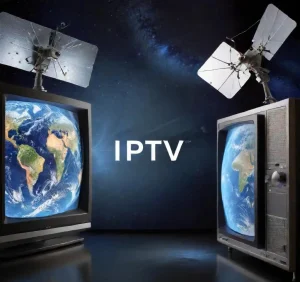Living in the tranquil beauty of a rural area often comes with a trade-off – limited access to reliable, high-quality television. Thankfully, we’re long past the days of fuzzy antennas and limited channel choices. Today, two technologies are battling for dominance in rural entertainment: IPTV (Internet Protocol Television) and Satellite TV. But which one comes out on top? Let’s dive into the world of bits and beams to find out!
Imagine streaming your favorite shows and movies, just like you do with Netflix, but with a wider selection of live channels. That‘s IPTV in a nutshell. It delivers television content over your internet connection, offering a blend of traditional TV and on-demand entertainment.
Think of your internet connection as a pipeline. IPTV providers send encoded TV signals through this pipeline to your set-top box or smart TV. This box decodes the signals, allowing you to enjoy your favorite programs.
IPTV often comes with attractive packages that can be lighter on your wallet compared to traditional cable.
With a stable internet connection, you can enjoy crystal-clear HD and even 4K content.
IPTV often includes access to extensive on-demand libraries and features like pausing live TV and rewinding missed moments.
Remember that pipeline we talked about? If your internet goes down, so does your entertainment.
While IPTV offers a good range of channels, it might not match the extensive lineups of some satellite providers.
A slow or unstable internet connection can lead to frustrating buffering delays and pixelated screens.

Satellite TV is the veteran in the ring. It beams programming from satellites orbiting Earth directly to your dish, bypassing the need for cable or fiber optic connections.
Imagine throwing a rock into a pond. The ripples travel outward from the impact point. Satellite TV works similarly, with the satellite sending signals that spread out like those ripples, covering vast areas, including those remote corners where cable companies fear to tread.
Live miles from the nearest town? Satellite TV has got you covered. It can reach almost anywhere with a clear view of the southern sky.
Satellite providers are known for their vast channel offerings, often including niche and premium options.
Since it doesn’t rely on your internet connection, your TV entertainment remains uninterrupted during internet blackouts.
Heavy rain, snow, or even thick cloud cover can disrupt your signal, leading to frustrating interruptions.
The initial setup costs for satellite TV, including the dish and installation, can be higher compared to IPTV.
Be prepared to sign on the dotted line, as satellite TV often comes with contracts that lock you in for a specific period.
| Feature | IPTV | Satellite TV |
|---|---|---|
| Coverage | Dependent on Internet Availability | Wide, Ideal for Remote Areas |
| Channel Selection | Good, but might be limited | Extensive |
| Reliability | Dependent on Internet Stability | Generally Reliable, Except for Weather |
| Cost | Generally Lower Overall Costs | Higher Initial Costs, Contracts |
| Picture Quality | Excellent with Good Connection | Good to Very Good |
| Additional Features | Video-on-demand, Interactive Options | Limited Additional Features |
So, which entertainment champion takes the crown? The answer depends on your specific needs and circumstances:
Ultimately, the best choice between IPTV and satellite TV for rural areas is like choosing between a Swiss Army Knife and a sturdy axe. Both are valuable tools, each with its own strengths and weaknesses. Assess your internet connectivity, budgetary constraints, and viewing preferences to make an informed decision that keeps you entertained in your rural haven.
You can often bundle IPTV with your internet service, but make sure your internet plan offers sufficient speed and data allowance to support streaming.
While it’s best to leave the installation to the professionals, it’s usually a straightforward process involving positioning the dish and connecting it to your receiver.
While light rain might not cause issues, heavy storms can temporarily interrupt your signal.
Yes, most IPTV providers offer local channels based on your location, but availability can vary.
Some providers offer prepaid or month-to-month options, but these might come with a limited channel selection or higher initial costs.

Copyright © 2026 "NetTV" - All Right Reserved

